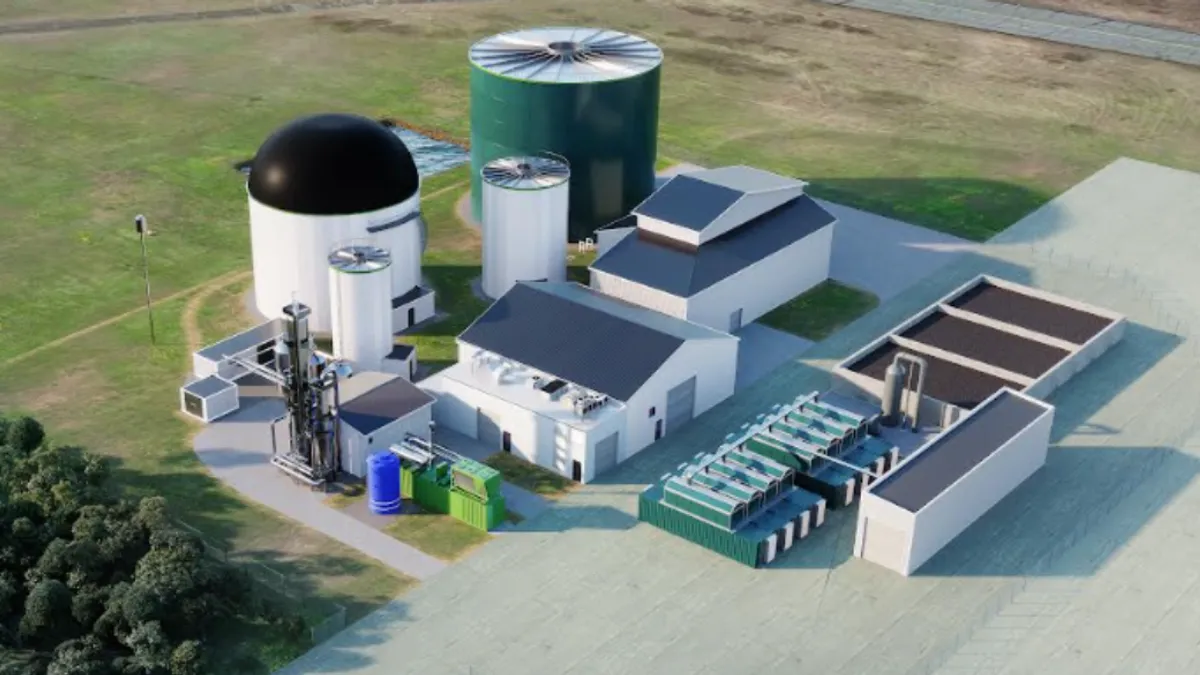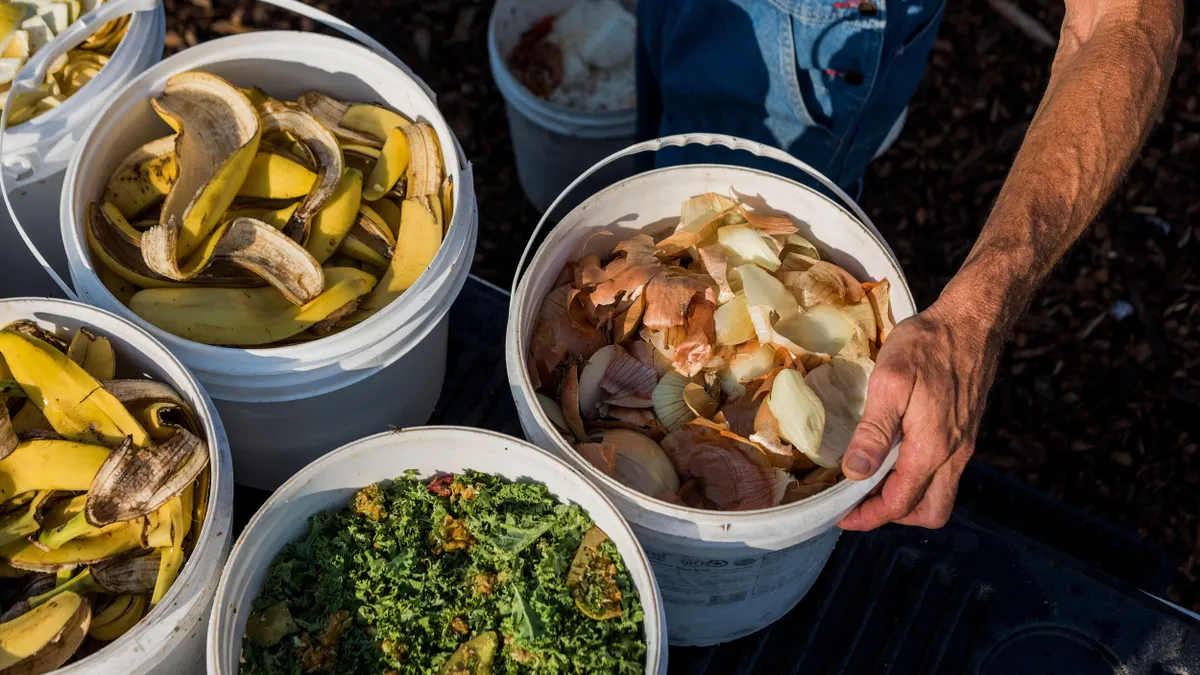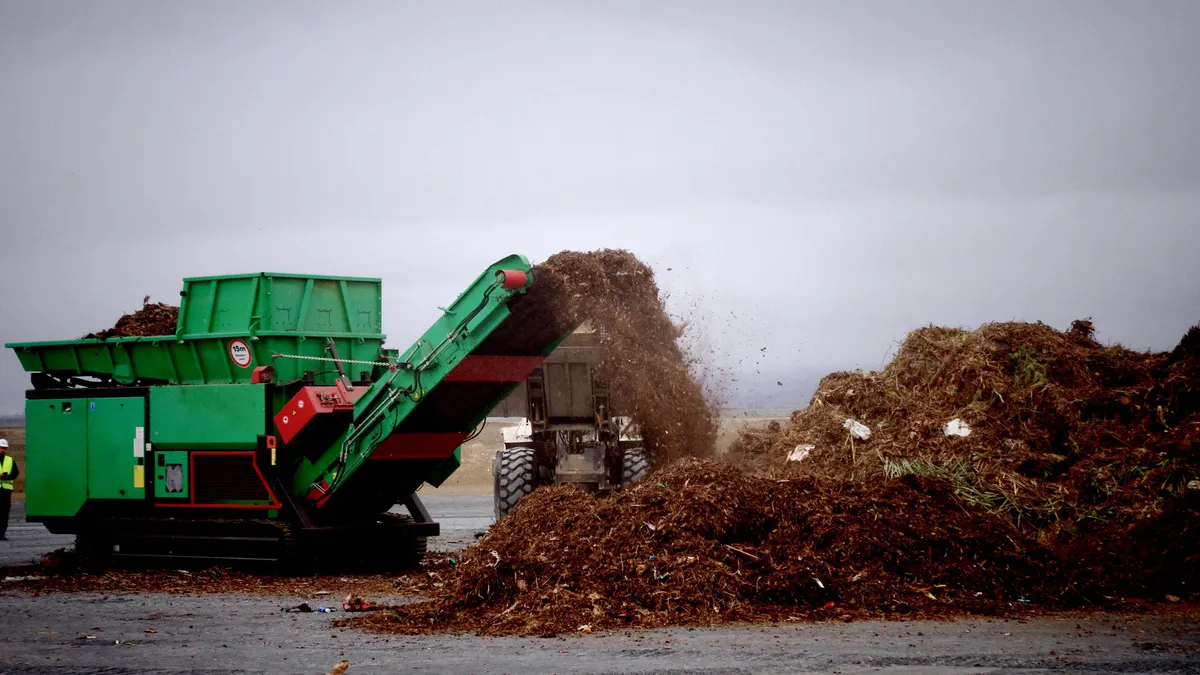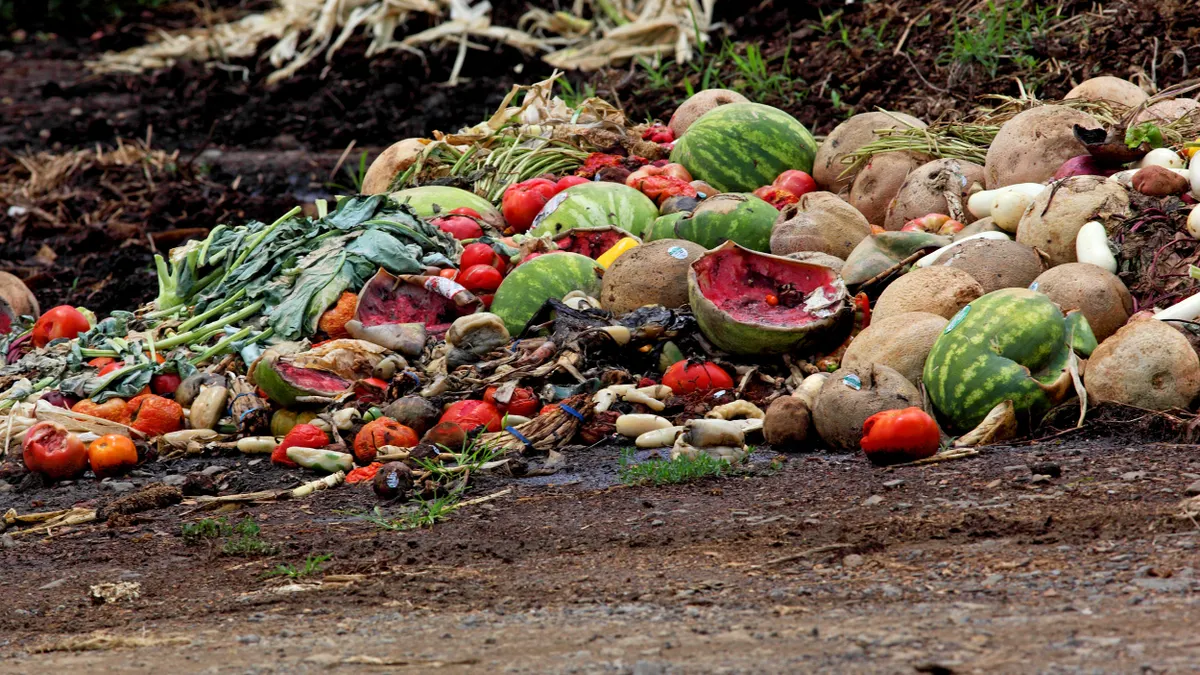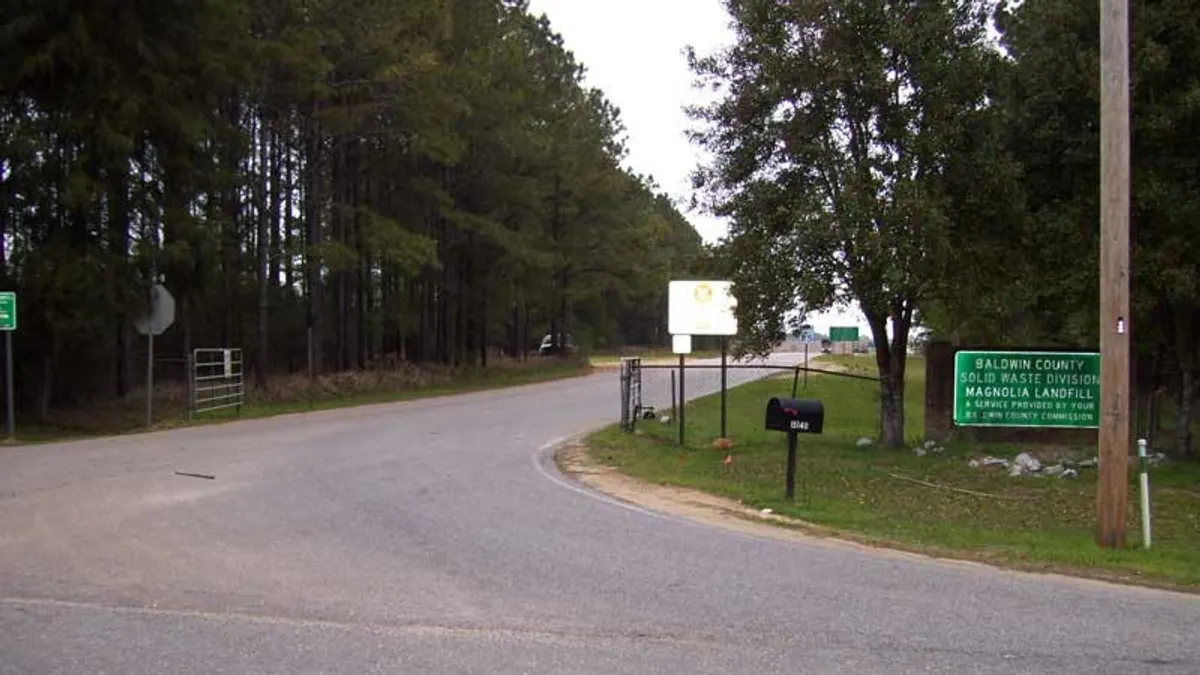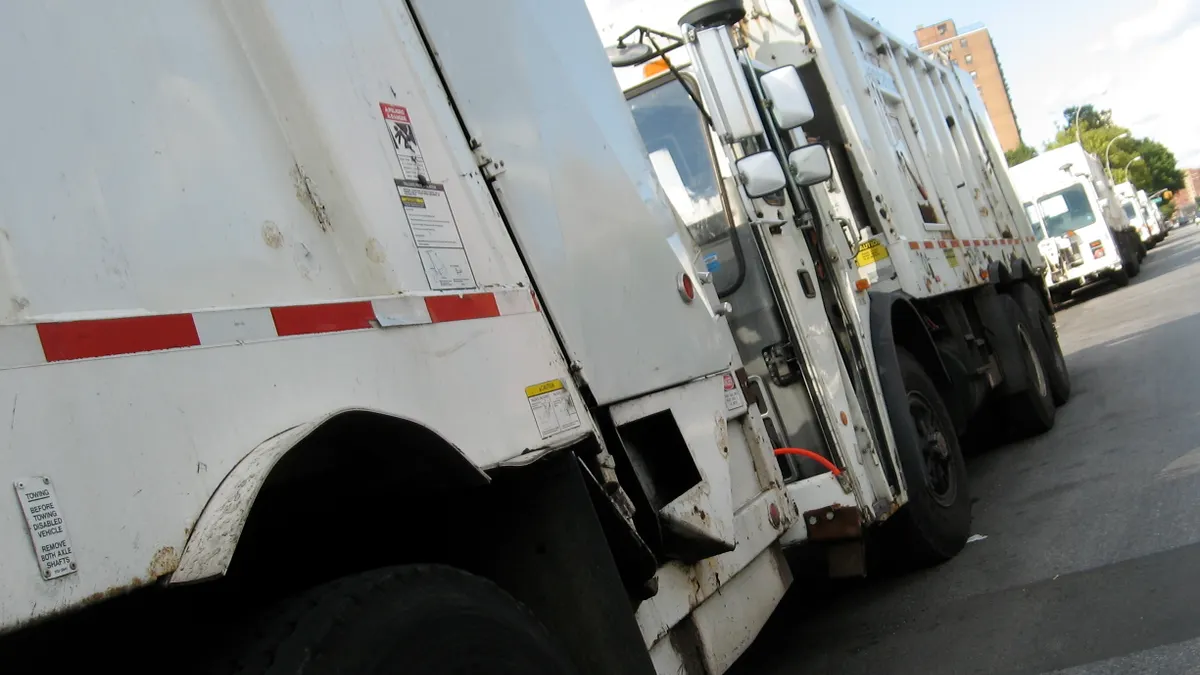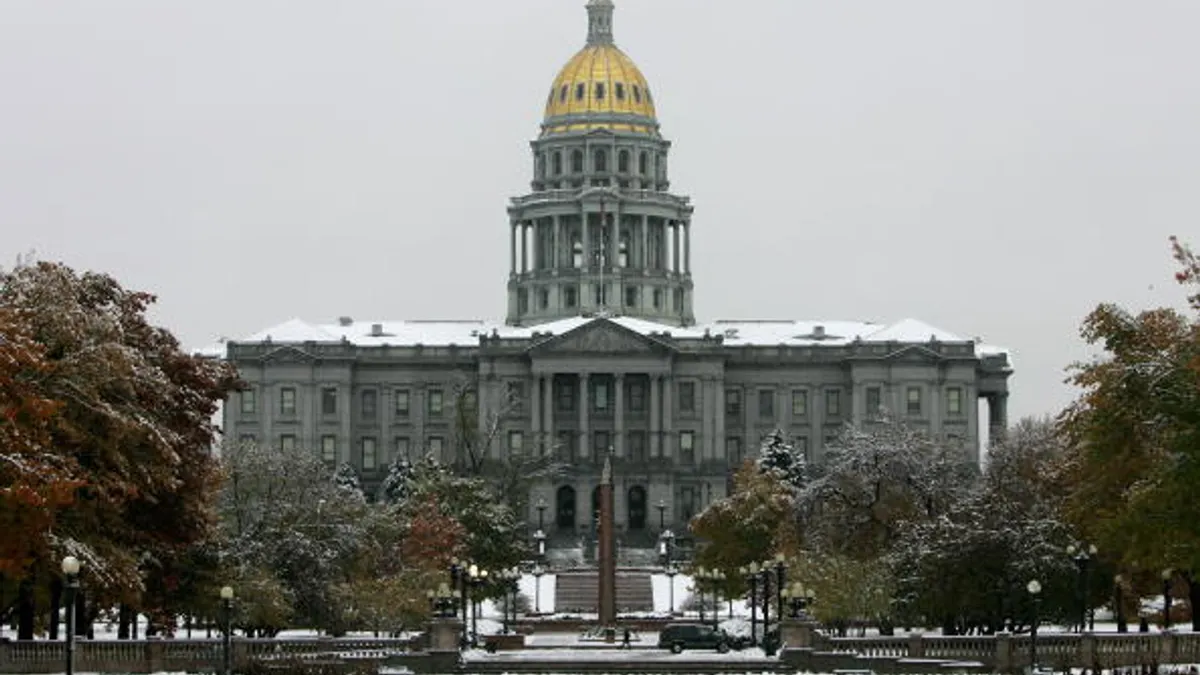This is the latest installment in Waste Dive’s Biogas Monthly series.
Amendments to the Low Carbon Fuel Standard approved by the California Air Resources Board late last year went into effect on July 1. CARB implemented the changes after the state’s Office of Administrative Law triggered a procedural delay to clarify some language.
The amendments ratchet up the amount of credits that petroleum fuel producers and refiners must buy, and include an auto-accelerator mechanism to further boost those obligations. The mechanism would kick in if certain targets are met.
Credit prices appear to have largely remained stable, with a small increase after CARB first announced the implementation date on June 27, according to Stillwater Associates.
But the LCFS, which has inspired similar programs in other states, is under threat of a significant change via state legislation. California SB 237 would pin the LCFS credit price to its average statewide price on Jan. 1, 2025, and only allow it to rise annually by the rate of inflation. The bill, which has earned supporters in the state’s assembly, is a response to broader fears that the state’s climate policies are causing higher gas prices.
The true impact of the LCFS on gas prices is uncertain. CARB has walked back previous estimates that the LCFS raises prices significantly, and there are now varied estimates as to the true cost.
Bill Magavern, policy director for the Coalition for Clean Air, said SB 237 "would definitely cramp some of the possibilities of the LCFS." He noted that makers of low- or zero-emission trucks rely on higher credit prices to make their models more economical. He said the Coalition for Clean Air does not support the bill.
"I don't think it's very well thought out, and I think it would delay the transition to zero-emission transportation," Magavern said.
SB 237 was referred to the Assembly’s Committee on Utilities and Energy on June 27.
Around the country, biogas projects and legislation faced shifting fortunes. Below is a selection of updates.
Michigan House passes bills supportive of anaerobic digestion
The Michigan House passed a pair of bills designed to streamline permitting rules for anaerobic digesters. The companion bills received bipartisan support and are now in the state senate.
The bills were introduced after Generate Upcycle shut down its anaerobic digestion facility in Fremont over a years-long permitting spat. Vice President Dan Meccariello accused the Michigan Department of Environment, Great Lakes, and Energy of "bias against anaerobic digestion" at a hearing following the facility's closure.
HB 4265 and HB 4257 would develop a regulatory standard that would prevent the need for overlapping permits and set a 180-day deadline for permitting decisions, among other changes, according to the Michigan Farm Bureau. The group lobbied in favor of the bills.
Brunswick, Maine, disapproves of biosolids facility expansion
The Brunswick, Maine, town council voted unanimously to disapprove of an expansion plan for the city’s biosolids digester brought by Viridi Energy. The biogas company acquired the digester in March 2024 and announced an agreement with Casella Waste Systems to ship in additional biosolids as part of its expansion plan.
Viridi proposed the expansion as the state has dealt with significant biosolids disposal capacity issues in recent years. That constraint has led to a series of proposed solutions in the state, including an in-construction biosolids dryer at a WM-owned landfill and another biosolids drying facility in Norridgewock.
Viridi is seeking a contract rezoning for the Brunswick facility, a tailored zoning process involving negotiations between town officials and the applicant, to allow for the expansion. Viridi previously met with the council in January for feedback on its application, and June's meeting was a pre-application follow-up.
Council members said there was strong engagement from residents opposing the facility expansion. Viridi Energy did not respond to a request for comment about its path forward at the site.
Opal Fuels announces third tax credits sale from landfill RNG facility
Opal Fuels announced it sold $16.7 million worth of tax credits generated by its facility at the publicly owned Prince William County Landfill in Manassas, Virginia. The credits were generated thanks to an Inflation Reduction Act policy.
This is the third tax credit sale Opal has announced. RNG companies' ability to sell the credits, also known as transferability, was initially threatened in debates over the reconciliation bill. Ultimately, that ability was preserved.
Opal Fuels' previous tax credit sales involved its Sapphire RNG facility at the Sampson County Landfill in North Carolina and its Emerald RNG facility at the Arbor Hills Landfill in Michigan. Both of those landfills are owned by GFL Environmental.
Southern Company Gas expands RNG portfolio
Two subsidiaries of Southern Company Gas have acquired RNG from Texas facilities. The subsidiaries are Virginia Natural Gas and Chattanooga Gas. The seller of the attributes was not named.
Virginia Natural Gas serves about 310,000 customers in southeast Virginia. The utility has also announced plans to condition biogas into RNG at the Hampton Roads Sanitation District wastewater treatment plant. The planned $30 million Atlantic Treatment Plant would inject gas directly into the grid, WHRO reported.



